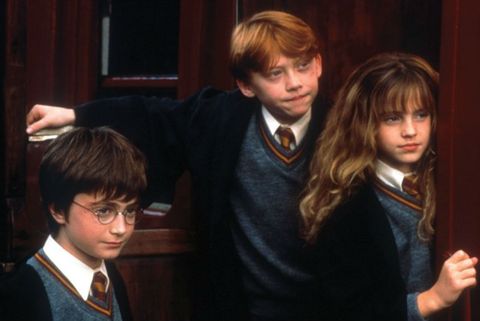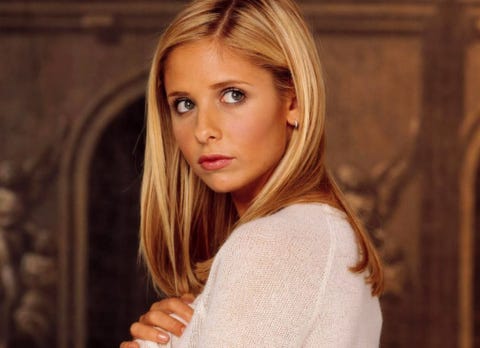Being Able to Seperate the Art From the Artist
1 of the biggest perceived threats to the mod-day glory is 'cancel culture'. It also happens to exist i of the biggest myths. The idea that a person with a platform (which, in the 21st century, is often Twitter) tin be de-platformed by society at large based on egregious behaviour or opinions has been disproven time and time once again.
But when nosotros await at the bigger pic, across Twitter and exaggerated tabloid headlines, we have to wonder if in that location are some kind of long-term repercussions for those who step over the line. The next question and then becomes: what is the line? And who decides?
When JK Rowling began tweeting her opinions on the biological basis of sex and gender, legions of fans came out to decry the Harry Potter creator as trans-exclusionary (something she denies) and, lodging their displeasure in a manner that has a more existent-globe consequence, publicly alleged they would no longer watch or read Harry Potter or whatever of its adjunct materials.
Many Harry Potter stars came out in force – with differing degrees of specificity – to condemn Rowling'south statements. But the damage was done, and those who had grown upwards cherishing her piece of work were left to wonder how they could reconcile a dearest of something so precious with a person whose views (that accept real-earth consequences across Twitter) they and so powerfully disagreed with.
In other words, can you – and should yous – divide the art from the creative person?
Daniel Radcliffe said yep, you lot can and should. Those for whom Harry Potter was a formative, shaping, and wonderful affair could never have that taken away from them past one person's backwards ideas about gender and society. For Hey Alma, HE Reich described the importance of Harry Potter:
"[Harry] lives in a cupboard nether the stairs, doesn't yet know the words for how he'due south different than the world effectually him, and at the zoo suddenly discerns a language so few can empathize... I've never heard of someone without the words to draw who they are, and it'south something I didn't know I felt as well, until now."
Who decides, so, what Harry Potter at present ways to them? The obvious respond is only Reich tin decide for themself (and you should read their essay on the thing) and by extension, only each of united states can decide for ourselves how we move forward with this kind of knowledge.
Similarly to Harry Potter's touch on a generation of young readers, Buffy the Vampire Slayer was a revolutionary show that eschewed the damsel-in-distress trope and inspired a generation of young women to believe in their own, internal ability. So what do those women do now with the accusations that Buffy'south creator Joss Whedon verbally and physically abused women on his fix? (Whedon has yet to publicly address these allegations.)
In that location are some for whom this is too much – the allegations of Whedon's behaviour accept indelibly stained it, retroactively ruined the feminist message at the heart of Buffy. But for others, Buffy exists beyond Whedon, and his reported behaviour tin can't affect it. (Unlike Harry Potter, Buffy as well had other showrunners and creative input, similar that of Marti Noxon.)
Some people are better at compartmentalising these two things – who the artist is and what they create – but information technology's made more difficult when the fine art itself is so transformative. Equally Digital Spy's ain Laura Turner described:
"Teen angst aside, most girls can retrieve a time or three when they've had every ounce of power and self-belief stripped away. And so watching our heroine finally realising that she was plenty, all on her ain, was a cathartic experience I won't ever forget."
Who decides, then, what that moment in Buffy means to her?
As a reader or a viewer, we go on emotional journeys with these characters, and there'due south a sense of gratitude – of debt, even – to those who created this imperceptible thing that has so shaped united states of america. And so, the obvious conclusion is that it's upwardly to the individual to decide what they can or can't breadbasket. Who and what they will abolish, and who and what they will keep.
This content is imported from YouTube. Y'all may be able to find the aforementioned content in another format, or yous may be able to find more than data, at their spider web site.
Many of those so-called cancelled people would tell you that this kind of pile-on behaviour, the accusations and public haranguing, are career-ruining. But think, Roman Polanski – a convicted child rapist and fugitive – has worked consistently within the movie industry, and even won a Cesar award in 2020.
Polanski is maybe all-time illustrative of the divide betwixt society and industry. Society, as represented by the justice arrangement, deems him a criminal. But the motion picture industry – and the smaller Awards manufacture in particular – decided that they could not only stomach that, but give him an award likewise.
The idea that the industry is disconnected from its audition presents usa with another trouble. Is it really upwardly to us (the people!) to create those real-earth consequences?
This is where an individual has to call back of not but what level of cognitive dissonance they can manage personally, but what their continued watching, reading, or – about importantly – purchasing means. With each 'play side by side episode' click on Netflix, are we subtly condoning those who we publicly denounce?
If money is equated with approving of (or even indifference to) the artist, does a person's continued rewatches of Harry Potter – putting cents in Rowling'south pockets – get beyond the personal bear on that motion-picture show has? Are nosotros, by sinking into our sofas to watch Rupert Grint stuff chocolate in his mouths every bit we stuff chocolate in our mouths, saying something more than 'I need comfort'?
Maybe it's a sliding scale. Rewatching The Prisoner of Azkaban is a '2' on that calibration and queuing up to buy a signed re-create of the latest Rowling novel is an '11'. Calculation finances to the mix makes it more complicated, as not only do nosotros all have our ain relationship with our favourite shows, books and films but besides with coin.
Whatever weight the individual puts on money and time, it is more the responsibleness of the industry (journalists included) to hold these creatives to account, and non let them notice – nor publicise – the other nooks and crannies to engage in abhorrent behaviour or champion dehumanising behavior. It can be done.
Ironically perchance, we have Mads Mikkelsen replacing Johnny Depp in the next Fantastic Beasts as proof. And let united states not forget the tardily, great Christopher Plummer was swapped into All the Money in the World in the wake of accusations of Kevin Spacey's sexual misconduct.
If the film and TV industry put the wellbeing of its people above profit, we may take a safer infinite to get art from artists who are, at the very least, not abusive or bigots. (Naturally you – and we – won't agree with, nor like, every artist, simply that'south a far cry from denying trans people the right to be or verbally abusing meaning women.)
Another example is Netflix'southward recent Pieces of a Adult female, heralded for its unedited natural birth scene, undoubtedly a substantial moment in movie theatre. But the motion picture was plagued by the casting of Shia LaBeouf, who was accused of domestic violence by his ex-girlfriend FKA Twigs. (He has since categorically denied all claims in court.) Netflix removed his name from its preview information, and he was taken out of all the promotional cloth.
But he'southward still in it. He's still a lead, and each viewer has to decide whether the proficient that Pieces of a Woman does in exploring the grief a female parent feels losing a kid is enough to make LaBeouf's appearances on screen bearable (especially when he plays a man whose behaviour towards his wife is less than decent).
Similarly, can you lot watch Miranda Richardson as Rita Skeeter, a clearly unfavourable character described in the novels as having a 'heavily jawed face' and 'mannish hands', and non recollect nigh the anti-trans rhetoric that flowed in the wake of Rowling's comments? Or can you enjoy Roald Dahl's work knowing that his antisemitic beliefs fully informed the characterisation of, to name ii, his titular villains in The Witches and the Child Catcher in Chitty Chitty Bang Bang?
Whatever your determination is, wherever you draw that line, you have to alive with it. There are few things in life, especially life at present which is overwrought with trauma for and then many, that bring the states joy and information technology's up to each of us to decide what level of cognitive racket – of separation of art and artist – nosotros can live with.
It may be seen as a cop-out for us to say it'southward up to yous, just it is. And mayhap the best way to reclaim and clean these hugely influential works is to accept them in, wholly, and brand them yours. Later on all, that'southward what we all do each fourth dimension we press play; we invite these characters and these stories into our hearts, and they are now ours. Nevertheless much we 'owe' to those who created them, information technology is upward to united states to make them.
Digital Spy'south digital magazine is back! Cheque out issue 6 – including an sectional chat with Ant & Dec – plus all past issues with a 1-calendar month free trial, merely on Apple News+ .
Interested in Digital Spy'southward weekly newsletter? Sign upward to become it sent straight to your inbox – and don't forget to join our Watch This Facebook Group for daily TV recommendations and discussions with other readers.
Source: https://www.digitalspy.com/movies/a35508694/cancel-culture-joss-whedon-jk-rowling/






